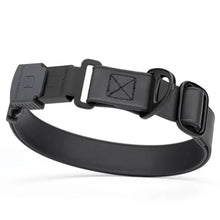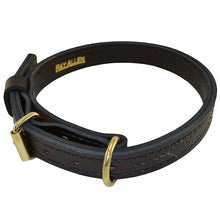Wellness Checklist - Things To Bring Up With Your Vet

Of course, you want your dog to stay healthy, happy, and active. One way to ensure your dog is just that is to schedule routine wellness examinations for your pet.
Since dogs can’t talk and many are experts at hiding health issues and pain, routine wellness exams help identify problems before they become serious. By diagnosing health problems early on, you can help your dog avoid needless suffering and you may even prevent more expensive vet bills.

What is a routine wellness examination for dogs?
A routine wellness exam is similar to an annual physical for humans. It’s a well dog visit that you schedule with your veterinarian as opposed to an appointment that you make when your dog is sick or injured.
The wellness visit allows your vet to see your dog while they’re at their best rather than under the weather. This helps them better gauge your pet’s overall condition and demeanor. The appointment includes a hands-on physical examination as well as lab work to ensure your dog is healthy.
Before the exam, you can expect your vet to ask you questions about your dog’s lifestyle and daily habits. During the exam, they’ll check your dog’s:

• Mouth
• Teeth
• Eyes
• Nose
• Ears
• Heart
• Lungs
• Abdomen
• Neck
• Legs
• Tail
• Skin
• Coat
• Nail
• Lymph nodes
• Pulse
• Fecal
• Blood
Your pet’s wellness exam is the perfect time to bring up any questions or concerns you have about your dog’s well-being. When you make your appointment, simply let the office know that you have some things you’d like to talk with your vet about so they can schedule enough time for you.

Here is a wellness checklist to help you prepare for your visit:
• What is your dog eating?
What brand of food/s and serving size?
• Does your dog eat treats or chews?
What kind of treats or chews, calories per day from treats?
• How much water does your dog drink in a day?
Is your dog drinking more or less than usual?
• What supplements or herbs do you give your dog?
Brand, serving size?
• What medications is your dog taking?
Has anything been prescribed by another vet?
• Have you noticed any weight loss or gain?
• Does your dog have dental issues?
Bad breath, avoiding chewing on one side, etc.?
• How active is your pet?
Has their activity level changed since their last visit?
• Have you noticed any behavior changes?
Do they have any loss of interest in things they once enjoyed?
• How often does your dog eliminate?
• Does your dog have normal stools, or have you noticed any changes in their habits?
• Does your dog ever vomit or get diarrhea for seemingly no reason?
• Has your dog had any vision changes?
• Do you notice any problems with them seeing in low light, eyes watering, etc.?
• Have you noticed any changes in your dog’s hearing?
Is your dog not reacting to sounds they once did?
• Has your pet shown any signs of stiffness or being in pain?
• Are they avoiding certain activities, trouble standing, limping, slowing down, etc.?
• Has your dog had any falls, been slipping on the floor, or lost their balance?
• Does your dog ever cough?
• Are you using a monthly flea, tick, and heartworm preventative?
What brands?
• How well does your dog sleep?
• Have you noticed any changes, restlessness, needing to go potty during the night, etc.?
• Has your dog been seen by any other vets or gone to the ER since their last visit?
If so, bring the records.
• Have you noticed changes to the skin and coat?
Hair loss, dryness, itchiness, etc.?
• Do you have any new concerns about your pet’s health?

How often should your dog have a wellness exam?
Dogs age much faster than people, so wellness exams are very important throughout their lifetime. It’s not true that every year of their life is equal to 7 human years. Did you know that by the time your dog reaches two years old, they are the equivalent of a 25-year-old?
You should talk to your vet about how often they’d like to examine your dog, but a good rule of thumb is:
• Very young puppies-monthly
• Healthy adult dogs-once a year
• Dogs with health issues a year
• Seniors/Geriatrics-twice a year

We hope this wellness exam checklist helps you prepare for your next vet visit.
You may also like: German Shepherd Dental Health: Preventing Dental Problems and Maintaining Oral Hygiene






















